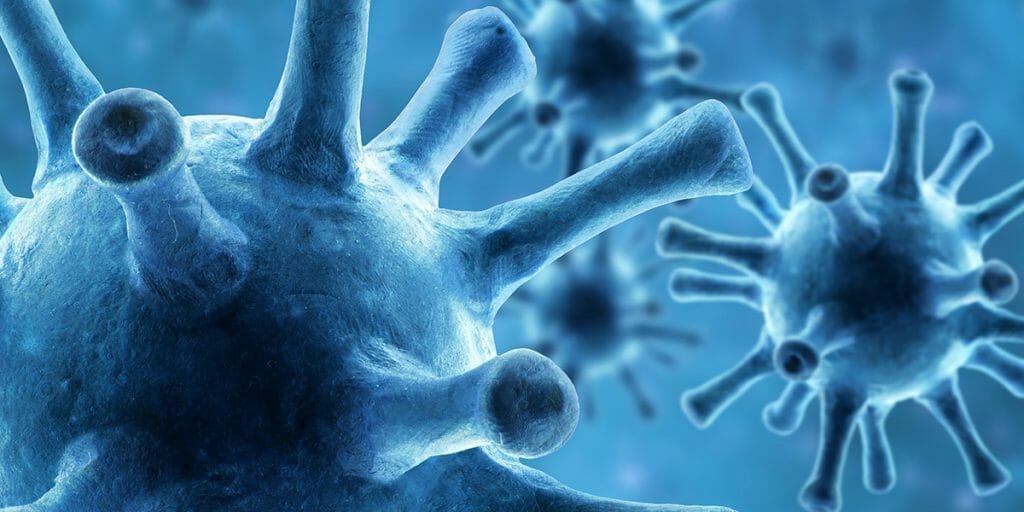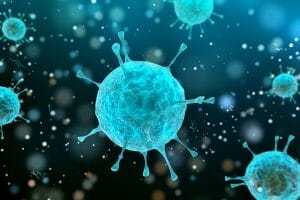
Microbes are big news, bigger than any other health related story for decades including Aids and Ebola. The Coronavirus (Sars-Cov-2 and Microbe No 1) has dominated popular, political, and scientific discourse for months.
The related pandemic as defined by the WHO on the 11 March 2020 is also challenging our bodies and minds in obvious and hidden ways. For, while protecting ourselves from unwanted exposure to the Sars-Cov-2 virus and limiting risk of infection, some people have begun to fear all microbes, regardless that many are beneficial for human health.
Humans, as we already know face rising rates of allergies, food intolerances, inflammation, auto-immune diseases, metabolic disorders and gut-brain conditions – negative health trends that are already entrenched in most societies and linked to a changing relationship with our various microbiomes and diet.
Is clean always healthy?
Our bodies are a comfortable home to trillions of microbes, in fact we constitute only slightly more human cells than bacterial cells. Naturally, as most people are not obsessed about their inner and outer microbes (excluding during pandemics) some confusion exists concerning specific microbes that live in, and on us. In addition to the often-complex terminology and differences between common microbes (e.g. bacteria, fungi, viruses) that support our health and help to keep us healthy, other microbes we host and or are exposed to, may be harmful.
The sensibly promoted hygiene practices that everyone is now familiar with and which are likely to remain a core public health message for many more months, may result in a further expansion of dysbiotic related events. Our heavily promoted exposure to microbe-limiting practices (mainly via the use of sanitisers) may have unintended consequences.
Our hygiene routines and physical distancing mean we are no longer exposed to some of the natural microbes that would normally educate and support our immune defences. Much as the drift from rural to urban life has shown a trend towards altered immune development, it’s possible that the evolutionary effects may be enhanced with higher levels of sanitary practices.
 Interventions
Interventions
Probiotics – literally “for life” from the Latin “pro,” meaning “for,” and the Greek “βίος” bios, meaning “life” – may be one of the heroes in our current germophobic environment. Once consumed they help counter the lack of microbe exposure by stimulating our body’s own bacterial population in the gut and priming our immune cells.
Numerous microbes used in probiotic supplements are naturally found within the body – the most common being Lactobacillus ssp and Bifidobacterium ssp. Different types of probiotics have different effects and demonstrate a variety of benefits like enhancing the immune system; supporting the existing good microbes in our bodies; producing certain vitamins and nutrients; and even stimulating neurotransmitters that influence mood, weight and more.
Your gastrointestinal health status is intimately linked to the rest of your body and many positive health outcomes are noted from probiotic research.
Immunity, epidemiology, and medicine are regularly exposed to many challenges and questions; recently, public health policies have been placed under real time quality analysis in a way that few have seen. The decisions and determinations have been scrutinised and questioned – it is quite clear there remain numerous interpretations of strategy and risk analysis, at a local, national and international level. The best interpretation in all reality is yet to be decided upon, albeit there are many who hold strong convictions.
Ensuring that once exposed either to the (or a) virus or a vaccine that your immune response provides genuine resilience, remains the primary aim. For without the confidence that immunity can be generated, induced and sustained, then a safe and secure exit position looks increasingly problematic.
The capacity for the immune system to build resilience through the generation of antibodies and specific T cells has been examined and many questions remain, albeit that, on the 2nd November 2020 the UK Coronavirus Immunology Consortium were able to demonstrate that the body can demonstrate robust cellular immunity (T cell responses in the absence of antibodies) at six months after infection in individuals who experienced either mild/moderate or asymptomatic Covid-19. Indicating that new and existing T cell responses may provide historical (i.e prior exposure to related viral particles) and new exposure protection to Sars-Cov-2, for at least 6 months.
This makes the practical determination to sustain access to core nutrients, bacteria (probiotics) and foods, that are required for long term immune resilience, all the more valuable.
Summary
Food supplements remain an important part of lifestyle management, and whilst they do not replace a healthy diet, they can quickly and effectively resolve deficiencies and specific nutrient needs at low cost and virtually no risk – something that a vaccine proposal has yet to demonstrate.

1 Comment. Leave new
Great article dear friends from the days at ION! Glad to read your perspective that is the same as mine. Keep it up! Karen